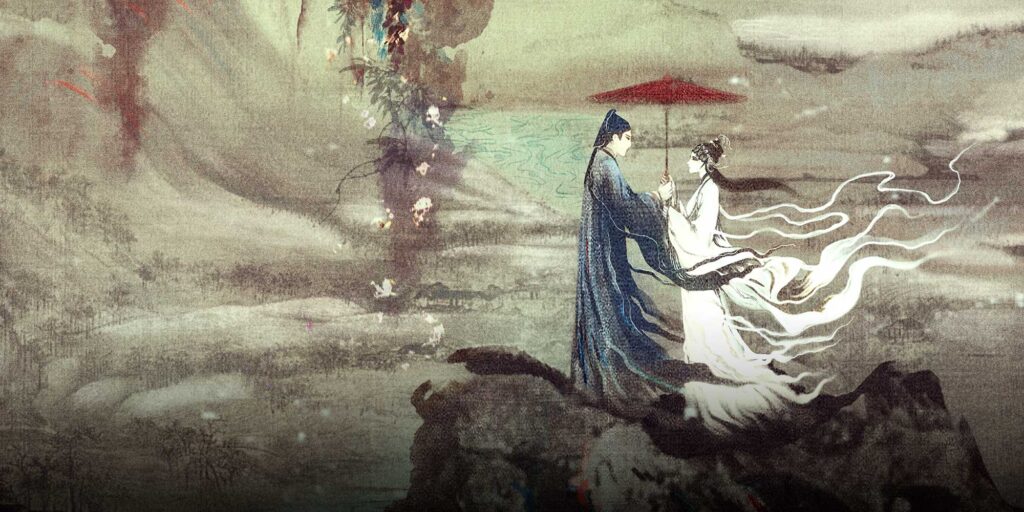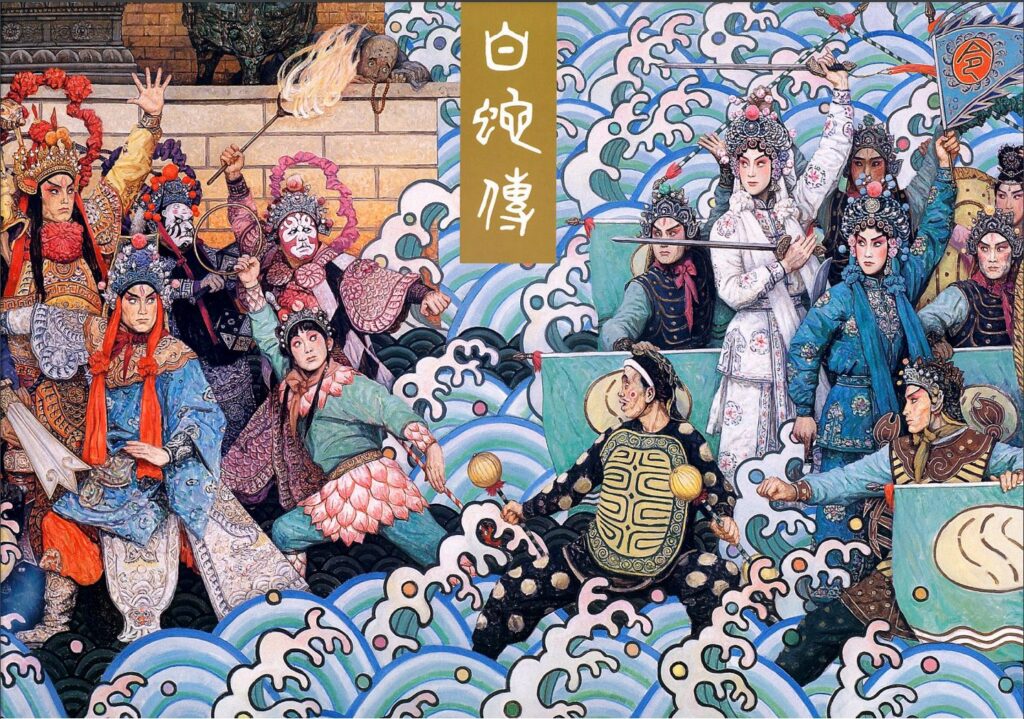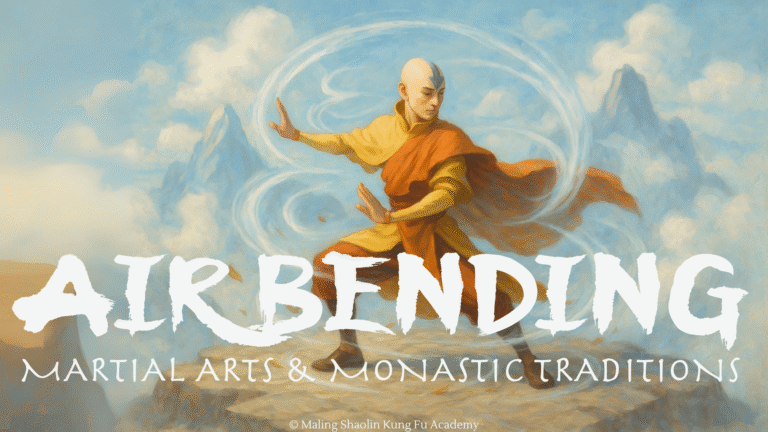
Table of Contents
The love story of Bai Suzhen and Xu Xian, also known as “The Legend of the White Snake,” is one of the most famous and enduring tales in Chinese folklore. While there have been many versions of the story over the centuries, the basic tale holds true. It is a captivating story of forbidden love, supernatural beings, and the enduring power of love across lifetimes. Here’s a detailed account of their love story:
Characters
Bai Suzhen: A white snake spirit who transforms into a beautiful woman. She is compassionate, wise, and deeply in love with Xu Xian.
Xu Xian: A young scholar who encounters Bai Suzhen in human form. He is kind-hearted, virtuous, and falls deeply in love with her.
Faihai: A devout Buddhist monk known for his unwavering commitment to protecting the mortal realm from supernatural beings.
Xiaoqing: A loyal and courageous blue snake spirit and Bai Suzhen’s devoted friend.
Story
In the picturesque city of Hangzhou, nestled beside the tranquil waters of the West Lake, lived a young scholar named Xu Xian. He ran a modest herbal medicine shop, where he spent his days tending to the needs of the townsfolk.
One fateful day, as Xu Xian strolled along the shores of the lake, he came across a wounded snake lying in the grass. Despite his initial hesitation, Xu Xian felt a pang of compassion for the injured creature and decided to offer it aid.
Bringing the snake back to his shop, Xu Xian tended to its injuries with care and kindness. To his astonishment, the snake miraculously recovered under his attentive ministrations.
Some time later, while Xu Xian is working in his medicine shop, a beautiful woman with flowing white robes and shimmering black hair visits his shop in search of a cure for her snake companion. Unbeknownst to him, this woman was none other than Bai Suzhen, a powerful white snake spirit who had cultivated her powers for centuries. She captures Xu Xian’s heart with her grace and charm and the two soon fall deeply in love with each other and marry.
As their love blossomed amidst the beauty of the West Lake, Xu Xian and Bai Suzhen reveled in each other’s company, sharing their hopes and dreams for the future.
However, their happiness was short-lived, as their love attracted the attention of Fahai, a Buddhist monk who harbored suspicions about Bai Suzhen’s true nature.
Driven by his duty to protect the mortal realm from supernatural beings, Fahai confronted Xu Xian and revealed Bai Suzhen’s identity as a snake spirit. Fearing for Xu Xian’s safety and influenced by Fahai’s warnings, Xu Xian distanced himself from Bai Suzhen, breaking her heart in the process.

Heartbroken and desperate to reunite with Xu Xian, Bai Suzhen was captured and imprisoned in Leifeng Pagoda by Fahai, who sought to sever her connection with Xu Xian and prevent further harm to the mortal realm.
Meanwhile, Xu Xian, consumed by grief and remorse over his actions, resolved to rescue Bai Suzhen and restore their love.
With the help of Bai Suzhen’s loyal friend, Xiaoqing, a blue snake spirit, Xu Xian embarked on a perilous journey to Leifeng Pagoda to free Bai Suzhen from her captivity.
Facing numerous obstacles and challenges along the way, Xu Xian and Xiaoqing displayed unwavering determination and courage as they fought to free Bai Suzhen from her prison. They confront Fahai and his followers in a fierce battle, eventually managing to break the spell of Leifeng Pagoda and release Bai Suzhen from her captivity.
However, their victory is short-lived, as Fahai, unwilling to accept defeat, unleashes his powers to wreak havoc upon the mortal realm. He summons a powerful flood to engulf Jinshan Temple, threatening the lives of its inhabitants and wreaking havoc upon the land.
In the face of this catastrophe, Xu Xian, Bai Suzhen, and Xiaoqing join forces to confront Fahai and put an end to his destructive rampage. They engage in a desperate struggle against the forces of nature, using their martial arts skills and supernatural powers to stem the tide and save the temple and its people.

With their combined efforts, Xu Xian, Bai Suzhen, and Xiaoqing manage to quell the floodwaters and defeat Fahai, restoring peace and harmony to the land once more. In the aftermath of the battle, they emerge victorious, their love stronger than ever before and their bond reaffirmed by the trials they have endured together.
Reunited at last, Bai Suzhen and Xu Xian embraced each other with tears of joy, their love stronger than ever before. With Fahai defeated and their bond reaffirmed, they returned to Hangzhou, where they embarked on a new chapter of their lives together, free from the constraints of Fahai’s interference.
And so, amidst the tranquil beauty of the West Lake, the legend of Bai Suzhen and Xu Xian lives on, a timeless tale of love, sacrifice, and the enduring power of the human spirit.
Themes
Forbidden Love: The love between Bai Suzhen and Xu Xian is forbidden by the laws of heaven and earth, as Bai Suzhen is a supernatural being and Xu Xian is a mortal man. Their love challenges societal norms and the boundaries between human and divine.
Sacrifice and Devotion: Both Bai Suzhen and Xu Xian demonstrate unwavering sacrifice and devotion in their pursuit of love. Bai Suzhen risks her own safety and defies powerful forces to rescue Xu Xian, while Xu Xian must overcome his own doubts and fears to embrace their love.
The Power of Love: Throughout the story, Bai Suzhen and Xu Xian’s love proves to be a powerful force that transcends obstacles and endures despite adversity. Their love is portrayed as a force of nature, capable of overcoming even the greatest challenges.
Legacy
“The Legend of Bai Suzhen and Xu Xian” has been passed down through generations in China and has inspired countless adaptations in literature, theater, opera, and film. It continues to captivate audiences with its timeless themes of love, sacrifice, and the enduring power of love to conquer all obstacles.

Over time our blog at Maling Shaolin Kung Fu Academy will post articles related not only to Kung Fu, but Chinese culture, tradition, history, legends, media, and philosophies. While Kung Fu remains at the core of our practice and teachings, we recognize that true understanding and appreciation of this ancient martial art extend beyond physical techniques. By exploring a diverse range of topics, we aim to provide a holistic view of Chinese heritage and its influence on martial arts, fostering a deeper connection with our students and readers. Through these articles, we hope to inspire curiosity, broaden perspectives, and promote a greater understanding of the rich tapestry of Chinese culture and its profound impact on the world.





